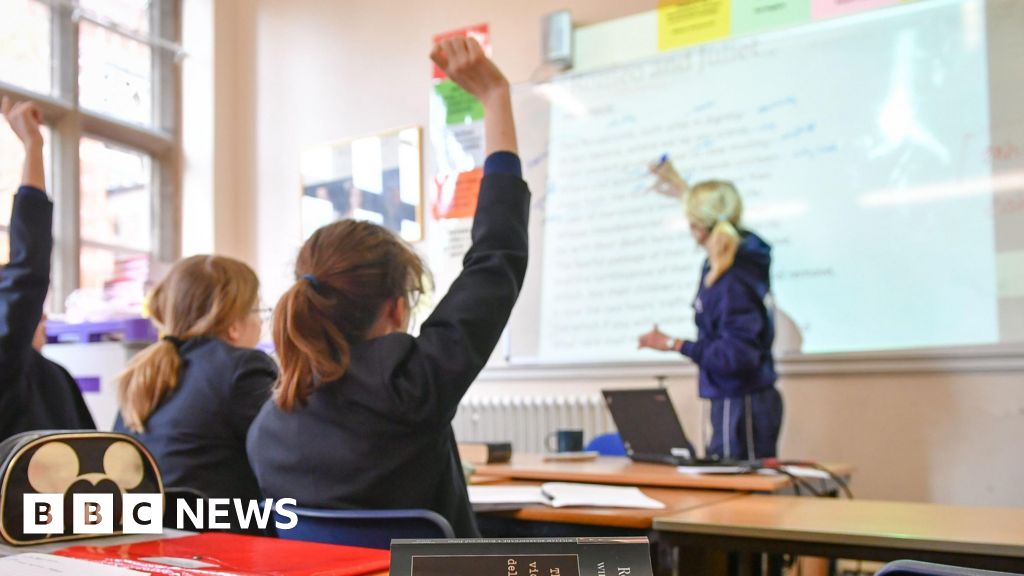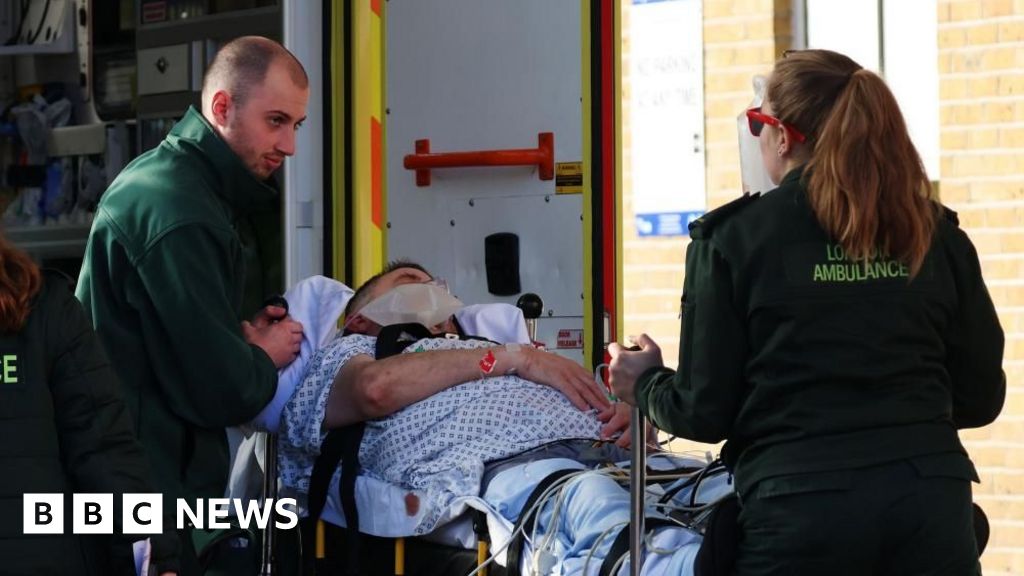ARTICLE AD BOX
Image source, Anadolu Agency via Getty Images
Image caption,A flag of Ukraine flies in front of a building, damaged in the clashes between Ukrainian army and pro-Russian separatists in Donetsk
Russia has been accused of trying to stage a fake crisis in a breakaway eastern region of Ukraine to give it a reason to launch an invasion.
Russian-backed rebel leaders in Donbas announced an evacuation of residents, saying Ukraine had intensified shelling and was planning an attack.
Ukraine has denied planning an offensive, saying Russia was spreading disinformation.
There is no sign of any mass movement of people leaving the region.
It comes as the US accused Russia of having up to 190,000 troops massed on Ukraine's border, up from an estimated 100,000 at the end of January. Moscow continues to deny it is planning an invasion.
Leaders of the Russian-backed self-proclaimed republics of Donetsk and Luhansk issued their evacuation orders on Friday, telling women, children and the elderly to relocate to Russia, claiming that Ukrainian troops were planning to attack their territories.
Hundreds of thousands of people live in the region, and such evacuation would be a huge undertaking. There is no indication that a mass evacuation is imminent, but Russian state media did report that several buses carrying local residents had made their way to Russia.
Denis Pushilin, head of the Donetsk People's Republic (DNR), said Russia had agreed to provide accommodation for people leaving the region, and that women, children and the elderly should be evacuated first.
The Kremlin later said that President Vladimir Putin had ordered that refugee camps be set up near the border and "emergency" aid paid to people arriving from the separatist areas.
Russia has been backing a bloody armed rebellion in Ukraine's eastern Donbas region since 2014. Some 14,000 people - including many civilians - have died in fighting since then.
Ukraine has repeatedly said it is not planning any attack, and seeks to regain control over the rebel-held areas using only diplomatic means. Ukrainian Foreign Minister Dmytro Kuleba on Friday dismissed what he described as "Russian disinformation reports".
US Secretary of State Antony Blinken said events over the past 48 hours were part of Russian efforts to create "false provocations" to justify further "aggression".
The US State Department later called the announcement of evacuations a "cynical" move by Moscow "to distract the world from the fact that Russia is building up its forces in preparation for an attack".
But President Vladimir Putin said the situation in eastern Ukraine was deteriorating.
At a press conference on Friday, the Russian president made unsubstantiated accusations of "mass and systematic violations of human rights" and enshrining in law "discrimination of the Russian speaking population" in Ukraine.
He told reporters that he remained willing to discuss the crisis in Ukraine with Western leaders, but accused them of ignoring Russia's security concerns, and warned that any deal must include a legally binding pledge that the Nato security alliance will stop its eastward expansion.
Evacuations troubling as disinformation swirls
The announcement by Denis Pushilin that women, children and the elderly will be evacuated to Russia is, potentially, a very troubling development.
The idea that an evacuation is needed because Ukraine is planning an attack on the two Russian-backed self-proclaimed republics of Donetsk and Luhansk is baseless.
With a vast chunk of Russia's military might positioned around Ukraine's borders, such an attack would be an act of lunacy. It is, quite simply, unthinkable.
But the separatists, and Moscow, want to create the impression of imminent danger. Yesterday, the Kremlin spokesman, Dmitry Peskov, said the situation around Russia's borders could ignite at any moment.
President Putin this week repeated his allegation, entirely without foundation, that Ukraine was responsible for genocide in eastern Ukraine.
With Western leaders warning of possible "false flag" operations, and crudely made videos circulating on the internet purporting to show Ukrainian saboteurs at work, these are dangerous moments in a crisis that already feels dangerous enough.
The rising tensions over eastern Ukraine came amid reports that Russia was further building up its forces on the country's borders, just days after it said it was pulling them back.
The US now estimates there are 169,000-190,000 Russian personnel massed "in and near Ukraine", compared to about 100,000 at the end of January.

 3 years ago
37
3 years ago
37








 English (US) ·
English (US) ·